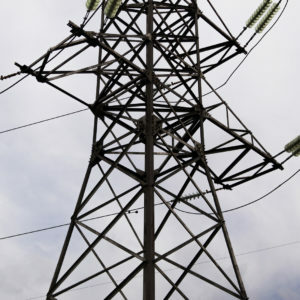Pennsylvania ratepayers, energy abundance, and the rule of law all won in Commonwealth Court this week when judges ruled the Keystone State cannot join the Regional Greenhouse Gas Initiative (RGGI).
We at Americans for Prosperity-Pennsylvania are elated by the ruling, which rejects a regressive carbon tax that would fall heavily on our energy industries, burdening ratepayers and killing family-sustaining jobs.
Gov. Josh Shapiro’s (D) predecessor Tom Wolf (D) tried to commit Pennsylvania to this multi-state carbon-tax scheme by executive action, circumventing the legislators elected to represent us. In the opinion written by Judge Michael Wojcik, the court affirmed that the state Constitution requires legislative approval for the state to levy any tax.
“Stated simply,” Judge Wojcik wrote, “to pass constitutional muster, the Commonwealth’s participation in RGGI may only be achieved through legislation duly enacted by the Pennsylvania General Assembly, and not merely through the Rulemaking promulgated by [the Department of Environmental Protection and the Environmental Quality Board].”
We call upon our governor to heed the soundness of this ruling. He should, moreover, harken to the vast and diverse coalition of Pennsylvania workers, consumers and industry leaders who have warned about the harm RGGI would do to our state’s leadership in energy production.
Despite immense political pressure coming from his left, Gov. Shapiro has so far resisted committing Pennsylvania to participating in the pact; his own working group studying the matter has not embraced the initiative. This resistance is well-founded.
Our legislators can meanwhile swiftly act to protect ratepayers from improper carbon-tax measures for years to come.
State Representatives Jim Struzzi (R-Indiana) and Dallas Kephart (R-Clearfield) are spearheading a bill to eliminate the Wolf rule implementing RGGI. Enacting this legislation would prevent the executive branch from unilaterally foisting this initiative or any similar carbon-tax policy on Pennsylvanians ever again.
As the bill’s sponsors noted when they announced their measure in February, the RGGI tax would worsen our commonwealth’s economic vulnerabilities insofar as neighboring Ohio and West Virginia have not adopted the program. Pennsylvania is already seeing a dismaying population decline, with the Independent Fiscal Office projecting a loss of 250,000 working age adults from 2020 to 2025. Politicians should not permit an ill-conceived and unconstitutional carbon tax to push even more workers and jobs out of the Keystone State.
Energy production is one of our state’s most abundant natural assets. According to the U.S. Energy Information Administration, we rank above every other state except Texas when it comes to producing natural gas, yielding over one-fifth of all U.S. dry gas production. Allowing our state to remain a leader in fossil-fuel extraction will facilitate a needed all-of-the-above approach to energy production that will put downward pressure on the rapidly increasing cost of living that we face in Pennsylvania and beyond.
Bipartisan majorities of both state legislative chambers have rejected RGGI before, noting that legislators must vote on taxing hard-working Pennsylvanians. So far, the Struzzi-Kephart policy has 32 cosponsors from regions all over the commonwealth. The House Environmental Resources and Energy Committee has nevertheless failed to advance the bill. It should finally do so, giving all state lawmakers the chance to send it to Shapiro’s desk.
Closure of the coal-powered Homer City Generating Station earlier this year showed the destruction that RGGI has already wrought by creating uncertainty in the energy industry. Policymakers have it in their power to end this unhappy chapter in Pennsylvania’s overall heartening rise to energy-industry dominance. They should act now.


